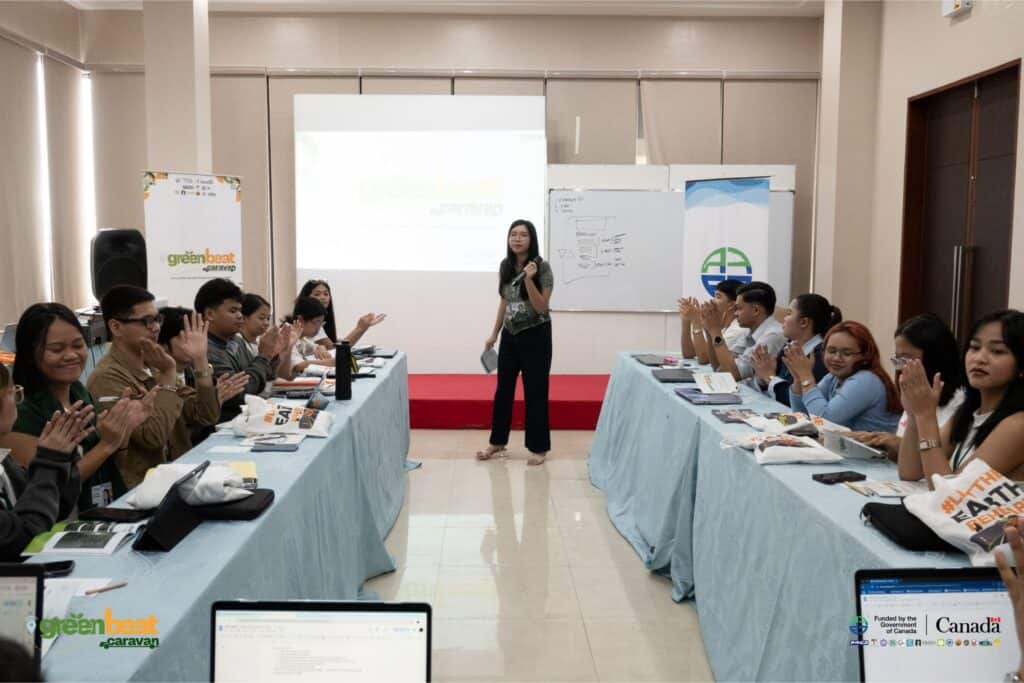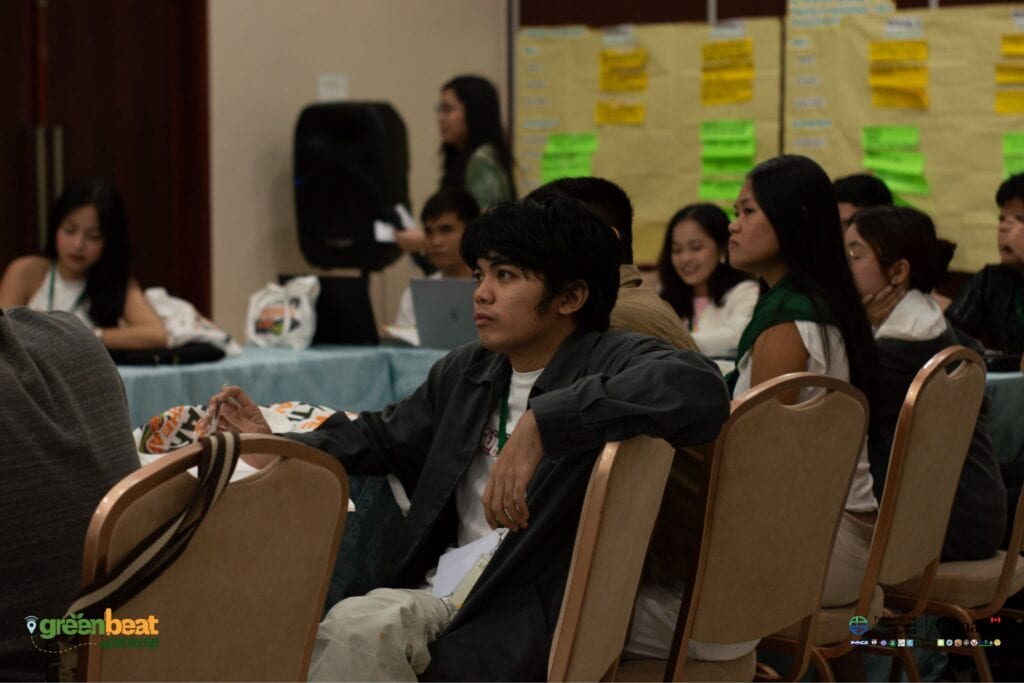TABACO CITY — The Association of Young Environmental Journalists (AYEJ) successfully held its Green Beat Caravan in the Bicol Region for the first time, hosting the training from July 18 to 20 at Isabella Hotel, Naga City.
The Green Beat Caravan is a training initiative designed to equip aspiring journalists and storytellers with the skills necessary for environmental journalism. Targeting six environmentally vulnerable regions across the Philippines, the program emphasizes journalist safety and press freedom through workshops, community-building, and knowledge-sharing activities.
Funded by the Government of Canada and in partnership with the Naga City Youth Development Office (NYDO), the event gathered 20 young journalists from the Bicol Region. These participants were given a valuable opportunity to join the growing network of AYEJ.
Among the attendees, nine were from Bicol University, including six fourth-year journalism students, one third-year journalism student, and two third-year psychology students.
The training program consisted of two parts. Participants first completed a virtual training module over two weeks, from July 3 to 17, followed by an in-person Blitz Workshop held from July 18 to 20 in Naga City.
The Blitz Workshop focused on enhancing participants’ understanding, skills, and confidence in environmental journalism. It also taught journalist safety and showcased strategies to report on environmental issues across various media platforms.
On the first day, the participants attended five lecture sessions about environmental journalism and engaged in a dialogue with local community members to learn about the current environmental issues in Naga City.
Atty. Ernesto B. Neri, director of Xavier University Center for Legal Assistance (XUCLA), was the guest speaker on the second day, providing valuable insights on journalist safety and security.
Jay Vhie Abunda, editor-in-chief of The Democrats at the University of Nueva Caceres, reflected on how the training shifted his approach towards environmental reporting. “I realized the importance of in-depth environmental reporting. The program helped me focus on progress and hope rather than just fear, inspiring people to take action,” Abunda said.
Gabriel Earl D. Mariscotes, a news writer for TheSPARK of Camarines Sur Polytechnic Colleges, praised AYEJ’s unique and immersive approach. “One more thing I love about the program is their focus on solutions journalism, hope-based communications, and environmental storytelling tailored for young writers,” Mariscotes shared.


Bicol EJ Hub Launch and Leadership
On July 20, upon completing the training, the 20 participants were formally welcomed as official members of AYEJ.
The pioneering officers of the newly established Bicol Environmental Journalism (EJ) Hub were elected. Ianthe Rosanes, a fourth-year student from Ateneo De Naga University (ADNU), was named the pioneering liaison officer of the region’s first EJ Hub.
“Environmental coverage often stops at disaster headlines, overlooking deeper stories from grassroots voices. But Green Beat Caravan helped us refocus our lens,” Rosanes said.
The EJ Hub aims to build a sustainable community of practice that continues producing and promoting environmental journalism. It encourages young journalists to amplify their training by sharing knowledge within their networks, pursuing green beat stories, and publishing work that addresses Bicol’s pressing environmental challenges.
Aprille Roselle Juanillo, AYEJ project officer and alumna, highlighted the benefits for the Bicol EJ Hub members. “The 20 participants will develop leadership skills through practical experience in project management, storytelling, and public speaking. They also gain credibility from the AYEJ Network, which provides access to over 1,100 professionals, grants, and publishing opportunities,” Juanillo explained.
The Green Beat Caravan targets six climate-vulnerable cities nationwide: Cagayan de Oro, Zamboanga, Cebu, Baybay, Malolos, and Naga. This initiative addresses the critical need for quality environmental journalism and community advocacy, delivering accurate information and education to help reduce risks and build resilience.
The program is supported by the Embassy of Canada through the Canada Fund for Local Initiatives (CFLI), which backs impactful, locally-led projects aligned with Canada’s global engagement priorities.| Hannah Franchezka Boragay
